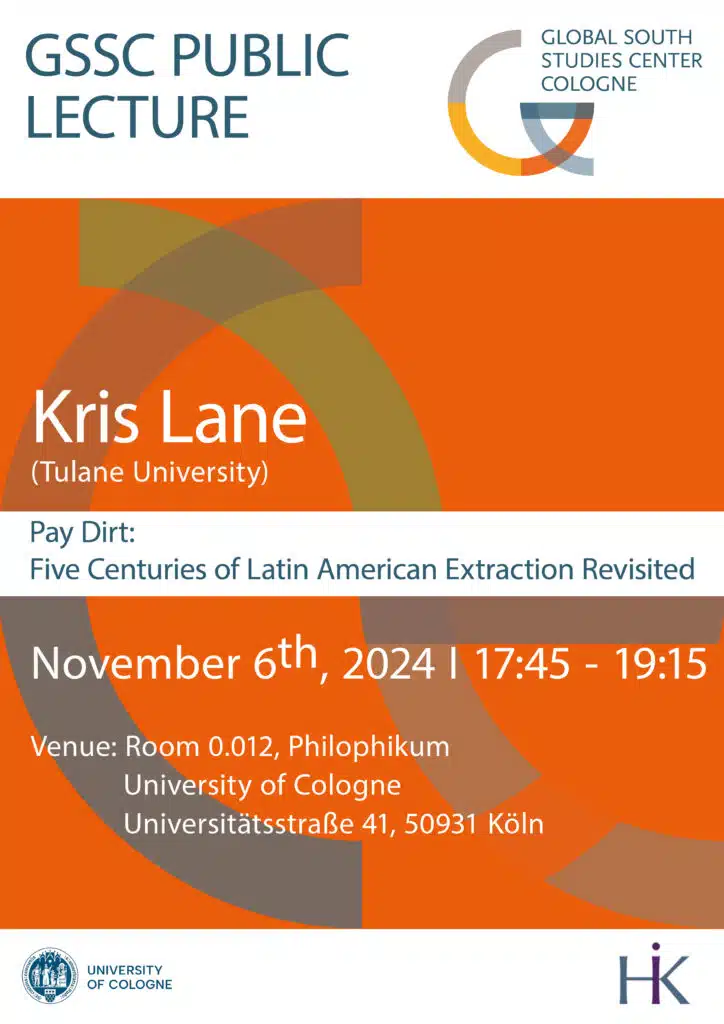GSSC Public Lecture: Pay Dirt: Five Centuries of Latin American Extraction Revisited – Kris Lane (Tulane University)
Abstract:
This presentation approaches current debates over mineral extraction in Latin America from a longue-durée historical perspective, asking how paradigms have shifted since the era of Columbus and Cabral. How have imperial or state imperatives driven or shaped extractive enterprises in relation to private initiatives? Who were the critics, and what success did they have, if any? When were environmental vs. social ills related to mining and refining first called out? How have Indigenous and other non-elite views of mining and other forms of extraction been variably silenced or trumpeted. How have feminist critiques of Latin American extractivism fared?
Bio
Kris Lane specializes in the Andes region of South America, focusing on the history of extractive industries and their global and local impacts. His research spans Colombia, Ecuador, Bolivia, Peru, Argentina, and Chile, with a deep interest in the environmental and social consequences of mining.
In Quito 1599 (2002), he explores the city’s early role as a gold producer, while Colour of Paradise (2010) traces Colombian emeralds to global markets. His 2019 book, Potosí: The Silver City that Changed the World, examines the rise and fall of Latin America’s richest mining city and its central role in global trade. His latest work, Pandemic in Potosí (2021), analyzes a deadly 18th-century disease outbreak in the Andes.
His current project, Royal Scam: The Great Potosí Mint Fraud of 1649, investigates a major colonial coin debasement scheme, while he also studies the Basque-Vicuña War of 17th-century Potosí. He co-authors textbooks on Latin American and world history.
Date:
November 6, 2024
5:45-7:15 pm (CET)
Venue:
Philosophikum, Room 0.012
University of Cologne, Universitätsstraße 41, 50931 Köln
The presentation is part of the colloquium of the Department of Iberian and Latin American History (IHILA) at the University of Cologne.



